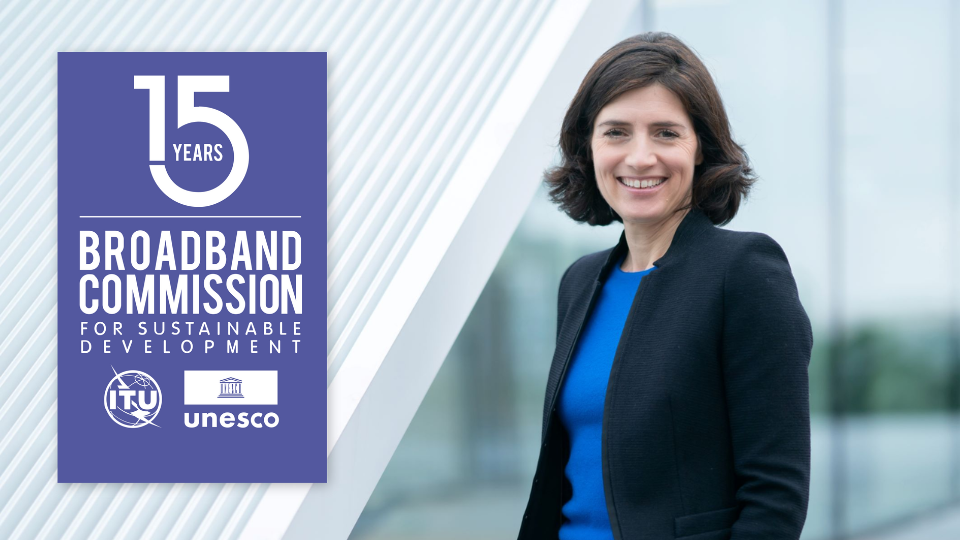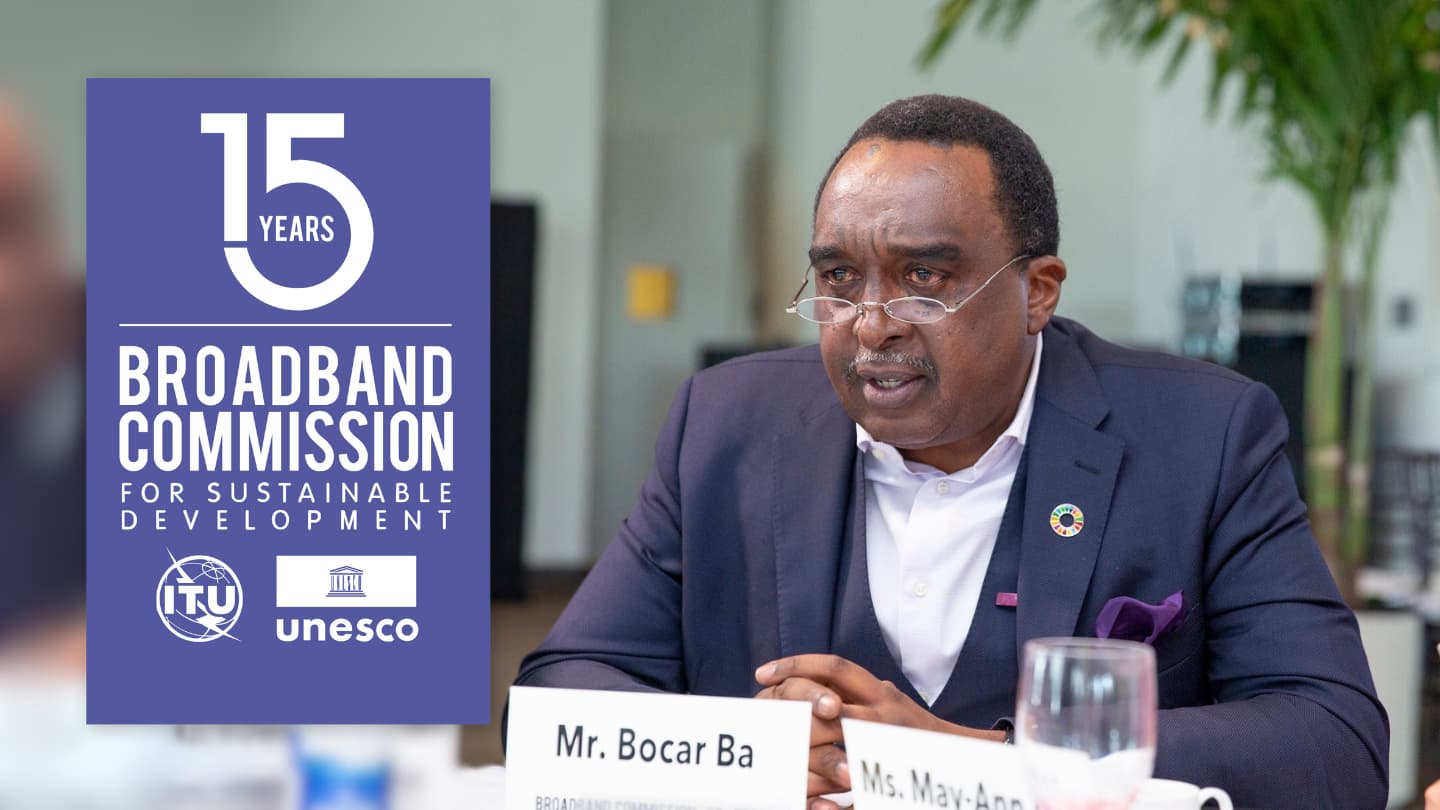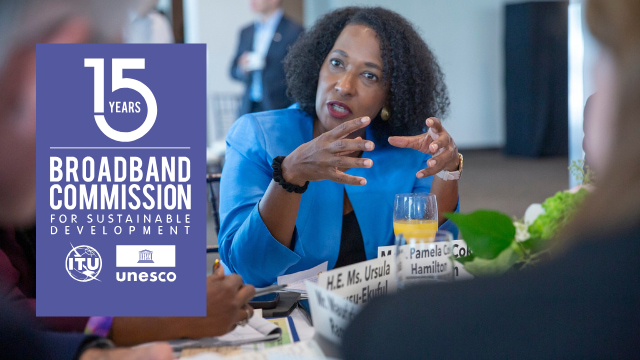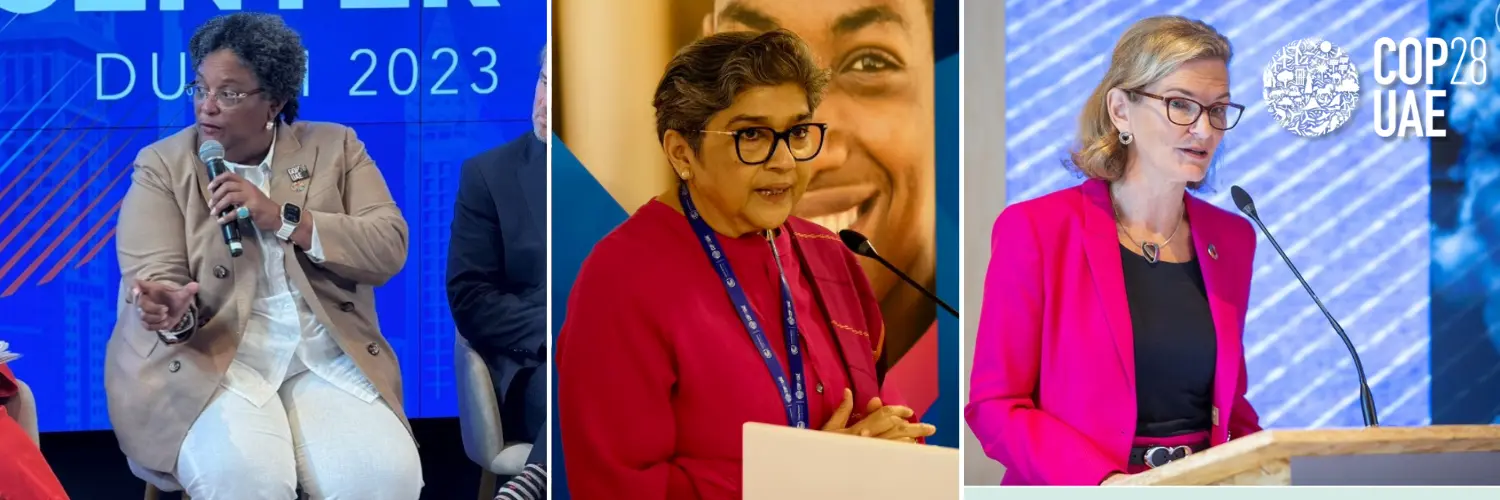
What is COP28?
The United Nations Conference of the Parties, commonly known as UN COP, is an annual event bringing together representatives from across the globe to address the global challenge of climate change. Organized under the United Nations Framework Convention on Climate Change (UNFCCC), the COP meetings serve as a platform for countries to negotiate and collaborate on international efforts to mitigate and adapt to climate change.
The host of the 28th United Nations Climate Change Conference, or Conference of the Parties (COP28) is the United Arab Emirates (UAE). COP28 provides a milestone opportunity for the world to come together, course correct, and drive progress to keep 1.5C within reach – so we can meet the goals and ambitions of the Paris Agreement. Many Broadband Commissioners and their entities are actively participating in this event, including through the ITU’s Green Digital Action coalition.

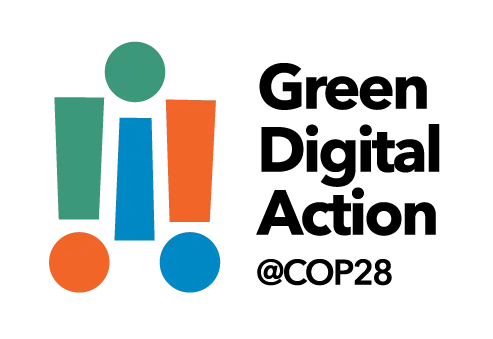
What is Green Digital Action?
The International Telecommunication Union (ITU), in collaboration with over 40 partners including governments, businesses, civil society and fellow UN agencies, is organizing the Green Digital Action (GDA) track at COP28 to advance climate action through digital solutions and address the environmental footprint and sustainable use of digital technologies. The initiative aims to unite the global digital community in developing practical solutions, step up climate support across the industry, and encourage commitments to a green and digital transitions from all stakeholders. Additionally, it seeks to foster partnerships and coordination to position the information and communication technology (ICT) sector as a leader in climate action and inspiring other industries to do the same.
The 5 key objectives of GDA are:
- Getting our own house in order: The tech industry must reduce its own emissions as well as drive sustainable climate solutions.
- Tackling e-waste worldwide: Good regulations for discarded devices are the first step towards creating circular digital economies.
- Disseminating early warnings for all: As climate threats grow, digital systems can provide life-saving alerts for vulnerable communities.
- Advancing climate solutions with open data: Telecom infrastructure and datasets can help track atmospheric carbon dioxide and changing weather patterns worldwide.
- Setting and implementing standards for climate action: Inclusive technical collaboration can help everyone, everywhere prepare for a low-carbon future.

Commissioners at COP28
Many members of the Broadband Commission and representatives of their entities participated in COP28, including the Honourable Prime Minister Mia Mottley, Ms Doreen Bogdan– Martin, Ms Rabab Fatima, Ms Pamela Coke-Hamilton, Professor Jeffrey Sachs, and Mr Filippo Grandi. Below are selected events highlighting their participation and contributions to the conference in the area of ICT for Development (ICT4D).
Please note, this is not a comprehensive review, view the full GDA and COP programmes online.
December 2nd
High-Level Opening of the Green Digital Action Track: Unleashing Green Digital Action for a sustainable digital tech industry
Participating Commissioner entities included: The World Bank, Nokia, Orange, MTN, ITU, CST and Huawei
The high-level opening session serves as a launchpad for the Green Digital Action track throughout the subsequent COP28 days. By spotlighting the potential of technology for environmental solutions and showcasing successful collaborative endeavors, this opening session establishes the stage for a dynamic track that fosters dialogue, innovation, and collaborative action to propel the digital tech industry toward a greener, more sustainable future.
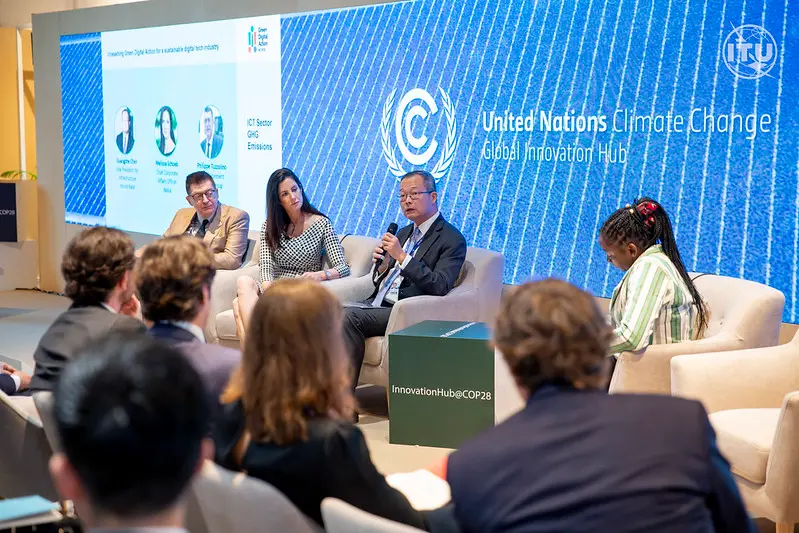
No Green Without Digital: Transforming Industries for a net-zero future
Hosted by Nokia
Digitalization will play a key role in enabling climate action. In the energy sector, it will support both renewables generation and grid transformation, allowing the sector to move faster with the green transition. Technologies such as digital twins and AI can also help hard-to-abate sectors find ways to accelerate sustainability efforts. Digitalization will play a key role in supporting all industries to decarbonize.
In this event, Nokia will bring together representatives from key industries to debate industrial digitalization and decarbonization. It will also introduce policy, regulatory and financing perspectives, debating what is needed to unleash the full enabling potential of digital.
December 3rd
Reducing ICT Sector GHG Emissions: Digital journey to net zero: Decarbonizing digital to accelerate the green transition
Participating Commissioner entities included: ITU, Nokia, Orange
Digital technologies such as 5G, Artificial Intelligence and Digital Twins can help accelerate climate action. They are essential to mitigation efforts by cutting emissions as well as adaptation efforts by helping to identify, monitor and address impacts of climate change already being felt.
But as everything becomes connected, demand for data grows, and the underpinning digital infrastructures proliferate, digital emissions will grow unless the industry takes action to decouple data growth from emissions.
In this event, key figures from the digital sector will outline its joint ambition and commitments to decarbonize digital to accelerate the green transition.
Innovative Digital Enabled Green Transition
Hosted by Huawei
December 4th
Digital connectivity and technologies for early warnings for all initiative
Participating Commissioner entities included: ITU, GSMA
Warning dissemination and communication, often referred to as last-mile dissemination, pose some of the most significant challenges in the multi-hazard early warning cycle. An inclusive and effective multi-hazard early warning system must address the diverse needs of different communities and ensure that understandable and actionable warnings reach people at risk in a timely manner.
The growth of digital technologies has created unprecedented opportunities to advance this initiative’s ambitious goals, particularly in enhancing countries’ capabilities for warning dissemination and communication. A multi-channel approach, which includes traditional mediums like radio and television as well as contemporary platforms such as social media and mobile phones, will expand the reach of alerts and address the diversity of communities. Innovations in satellite communications also play a prominent role in this array of channels.
This session spotlights the commitments and pledges made by the public and private sector, in particular the mobile and satellite industries to support the multi-channel dissemination of alerts under the Early Warnings for All initiative. It highlights the potential of technology in reaching people at risk more effectively and showcase the opportunities that arise from public-private partnerships.
December 5th
Digital Transformation on a Livable Planet
Hosted by The World Bank
Digital technologies can help countries manage and adapt to climate change. Yet, connectivity remains a significant global challenge, as nearly 3 billion people are still offline, the vast majority in low- and middle-income countries. Getting everyone connected can deliver massive development payoffs, for example by making communities more resilient to climate change through better access to information and service delivery.
While the digital sector is part of the climate change solution, it is also part of the problem. The carbon emissions from the sector range from 1.5 to 4 percent of global emissions, similar to that of the airline industry. To reach the goal of limiting global warming to 1.5°C, emissions from the sector will need to be reduced by at least half by 2030. At the same time, there is a need to accelerate the use of digital technologies as solutions and enablers for climate action across other sectors, which will require more investment in digital infrastructure and more energy to power this infrastructure and devices.
This session tackles the challenge of expanding access to digital technologies, including closing the connectivity gap, while doing so sustainably.

